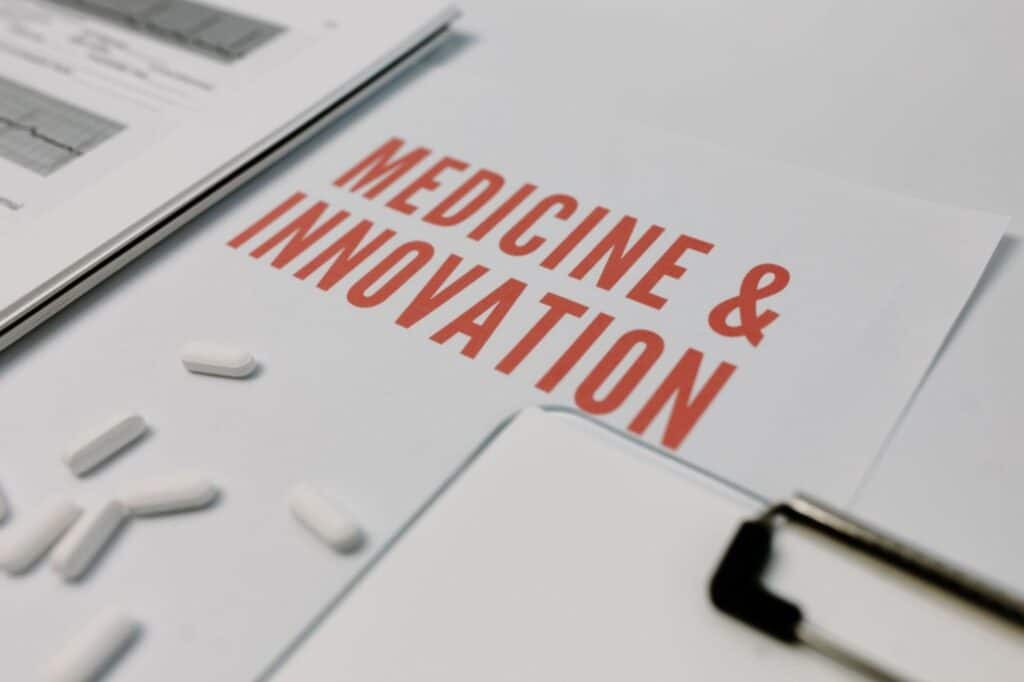How AI & Big Data is Changing Drug Discovery
Artificial intelligence and software that can manage vast amounts of data are already revolutionizing drug discovery. Dating back to the early 2000s, researchers have been analyzing the potential for AI to revolutionize drug discovery processes, including rational drug design, identifying candidate molecules for further research, and ways to improve QSAR methods.
Specific Benefits of AI and Big Data in Drug Discovery
Capturing and working with large amounts of data is one of the true benefits of AI in the drug discovery process, as well as other aspects of pharmaceutical research and development. According to Matthew Harrison, a biotechnology analyst with Morgan Stanley Research, “a 20% to 40% reduction in costs for preclinical development” could generate enough cost savings to develop four to eight new molecules with medical benefits.
According to PhRMA, an advocacy body that encourages the discovery of important, new medicines through public policy, the first stage of drug development takes approximately three to six years. Part of the delay in the process results from relying on predetermined targets for investigation, which can prove very costly to research and development budgets if the predetermined targets prove to be unsuitable for further development.
Boston Consulting Group says that “achieving full value from AI requires a transformation of the discovery process.” Using the higher predictive power of AI, companies engaged in drug discovery can make their discovery process faster and more efficient.
AI has benefits for drug discovery in locating the right biological targets. It also plays an important role in identifying and designing small molecules which qualify as good preclinical candidates for further research. AI can help to:
- Conduct molecular dynamics to screen for small molecule hits
- Analyze molecular structure and experimental data
- Predict small molecule structure and activity relationships (SAR)
- Analyze prospective protein targets
- Preselect drug leads using AI prediction of pharmacodynamic properties
As one example, Exscientia’s ‘Centaur Chemist’ AI design platform was used to compare properties of millions of small molecules to locate a potential drug candidate that could help T cells fight cancer in solid tumors. The ‘Centaur Chemist AI platform was able to assist researchers with locating a candidate for clinical trials in eight months, as opposed to four to five years using traditional methods of discovery.
Similarly, the Cerella AI platform by Optibrium, a drug discovery software company, supports researchers working in the early stages of the discovery process – through from lead identification and optimization to prioritizing which compounds to synthesize for further preclinical testing.
Challenges and Limitations of Big Data in Drug Discovery
One of the biggest problems in working with big data to support drug discovery isn’t quantity of data, it’s quality of data. For example, many pharma companies have massive amounts of medical imaging data, but it isn’t “ready for prime time” in terms of working with AI and machine learning. Imaging and other data can be noisy, siloed, and inaccessible.
Datasets are also enormous, with petabytes of data already built up from prior and current clinical trials and development processes. Integrating data from past processes along with current ones can be very challenging. And, data storage is yet another hurdle to overcome to move beyond legacy data analysis and project management to AI-informed drug discovery.
There’s no “one size fits all” solution available in the drug discovery and development process. It’s important for companies engaged in early drug discovery to get control over their in-house data first, which will aid in overcoming the challenges of working with big data in drug discovery.
AI software like Cerella’s proven technology can help to identify hidden opportunities and highlight high-quality compounds. It also helps to manage data securely and efficiently in the cloud.
Drug development software driven by artificial intelligence has significant potential to revolutionize many different pharmaceutical discovery processes. It can even aid in the transformation to an “AI-first” drug discovery and development process, reducing the need for physical experiments and accelerating the discovery process. Moving forward, companies that adopt an AI-informed strategy to drive their development process are likely to achieve better outcomes, according to industry analysts like Boston Consulting Group and McKinsey & Company.
Although big data analysis and AI techniques show vast promise to help the discovery and develop new medicines, they still require vision, experience, and determination to provide the crucial answers that are needed to advance through the drug discovery process.


























